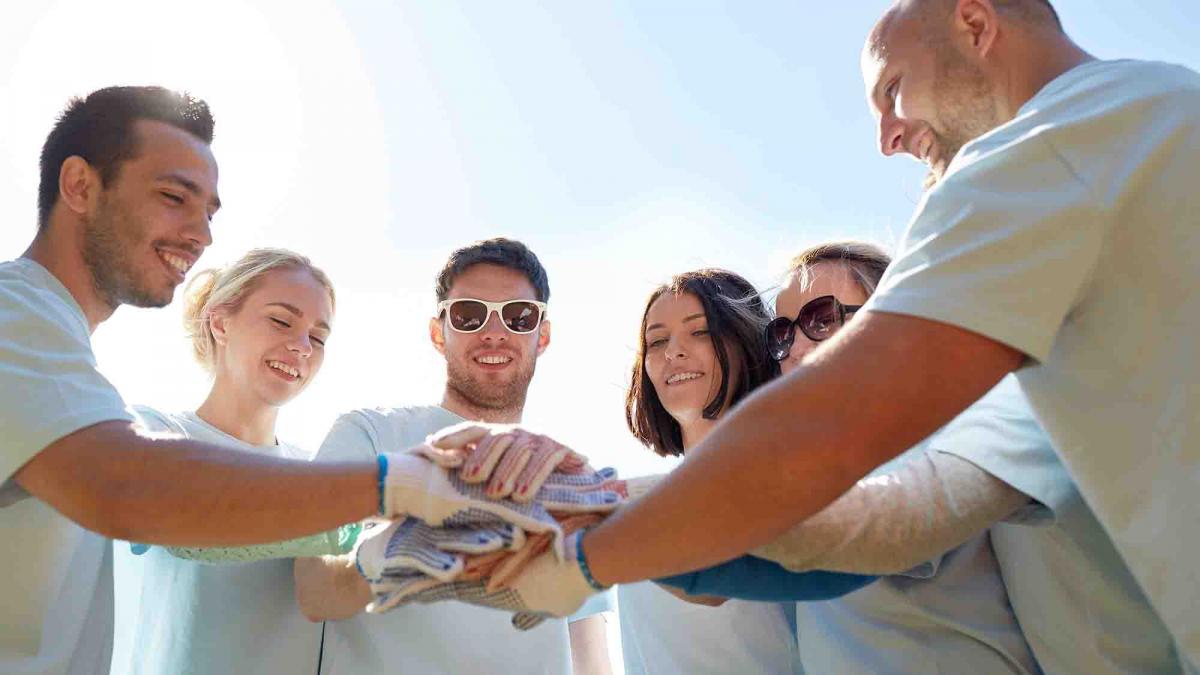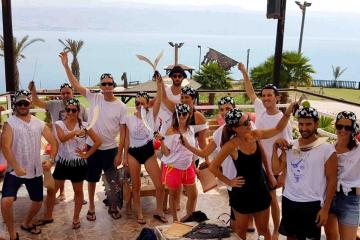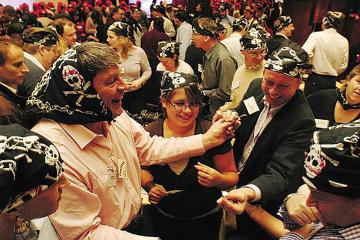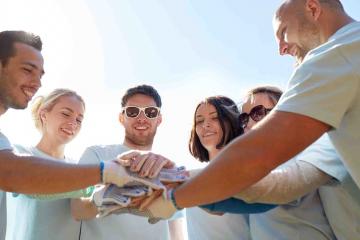About 17 years ago, I experienced something extraordinary. Something completely engaging, exciting and useful. Something equivalent to performing in a dance troupe and reading at a summer home on the beach. Yet different. In addition to being fully involved, I gained tremendous new knowledge there. One aha experience chased the other. And so the whole day went by! Unbeknown to that term at the time, it was probably one of my first flow experiences at school. What was this extraordinary event?
This was the first time I had ever participated in a training program. I was completely fascinated. And I'm still there! This combination of experience and knowledge is one of the most effective ways for me to learn. Although I was a good five at the time and felt completely comfortable in the school environment, I had never experienced such a pleasure in the learning process. Every "5" I earned was a small "cookie", but the road to it was simply something that had to be done for a good grade. However, during the training I experienced a real enjoyment of the process, where discovering that I had learned something useful was like a cherry on the cake.
So why isn't the word "training" in the title of this article? Because as an adult, going to high-spirited training sessions, I gained completely different experiences. Fortunately, I was only then able to learn his approach and principles as a student alongside that magnificent youth trainer. More on them soon. Before, briefly why this training struck me so hard.

Training - A Journey to Personal Discovery
The role of education in Estonia's success story is significant and its importance is difficult to overestimate. We have made a strong contribution to the development of our school education and fortunately the process is ongoing. However, there are situations, topics and areas for which non-formal learning is better suited. Perhaps it is a conscious learning process that does not take place between school walls in the normal school context. As a concept nowadays, the concept of non-formal education was not familiar to me 17 years ago. However, I was intrigued by the connection between the topics and their presentation, as if it were a natural discovery process where I realised many things when I was involved. For a young person accustomed to lecturing, memorising, and completing workbooks, it was something revolutionary.
Then working alongside that same trainer, I was just beginning to see how all my discoveries that seemed independent were encoded in the training plan! None of the stimulating activities were arbitrary or accidental. My journey to discovery was planned and built for the training day so that I could experience, discover and analyse myself, hear the discoveries of others, and truly feel like I was leading my own development. Nowadays, a similar approach is increasingly seen in formal education, but perhaps in a kind of cosmic reward, lectures in formal style are often sold under the name of training.
So why is this personal discovery better than someone else's information, for example, during a lecture? After all, lecturers are mostly professionals in their field and have accumulated a wealth of knowledge to share with others. This is where our brains come into play - a sort of being that controls everything from breathing to proving complex theorems. Brain features have long been studied, and for those interested in the brain, the present era is somewhat of a golden age: neuroscience is evolving rapidly and increasingly providing insights into how our brains function. From the perspective of learning and development, perhaps one of the most important insights is that every thought and habit is based on some connection in our brain. When we hear new information, but our brain does not have the knowledge or experience to associate it with new information, it does not hold.

Developing key skills through play
It is more likely, however, that knowledge or experience is in existence, but we can't access it fast enough. Take for example the case of listening to a lecture. The lecture moves through information at a fair pace. So, during the lecture, the brain must work through existing knowledge and then try to relate the new information to it. Unfortunately, because of the pace, we can't grasp everything. And, what is tragic is that if you don't keep these connections between information current they dissipate over time.
By combining different experiences with both training and participation, and interest in brain mechanisms, I have slowly begun to introduce a new principle called entertraining in Estonia. The combination of the English words "entertainment" and "training" refers to the connection of the two concepts. In this way, enter-training links the provision of experience with this analysis and exchange of relevant knowledge. The experience helps to bring forth the current knowledge and experience on the topic of the brain. Analysis combines experience and knowledge to create opportunities for new patterns of thought and behaviour. Sharing knowledge and experience with other actors creates closeness, a sense of responsibility and a sense of community.
Practically, it is clear to the participant. No lecture on enter-training concept is given. It is difficult to avoid participating yourself. However, this participation is fun and engaging, so there is little desire to circumvent it. I use playful solutions to guide participants to a topic, to solve it, or to summarise what they have learned and experienced during the day. The topics to be addressed in this way are limited only by the knowledge and experience of the performer. My main focus is on collaboration and communication skills as well as meaningful peer-to-peer learning, innovation and creativity, leadership development, strategic thinking, resource management, sustainability, brand awareness, awareness and focus management. These are areas I am familiar with, experienced on my own, and well developed. Each trainer has his / her own topics in which he / she feels comfortable.
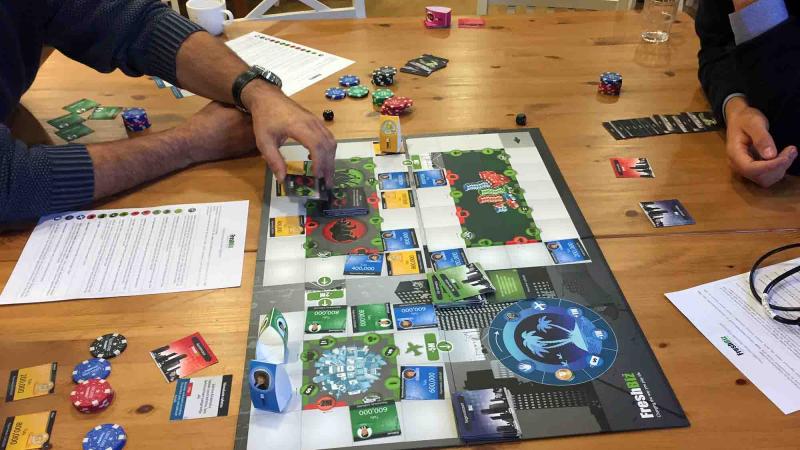
Enter-training - Connecting experience and knowledge
So how does the concept of enter-training differ from listening to a lecture? The key is still to connect experience and knowledge so that different brain regions are involved and the opportunity for behaviour change arises. For example, we have helped customer service staff understand the corporate brand through their knowledge and application of the scent world. By building boats, formulas, or pyramids together, many teams have developed their role-sharing, scheduling and management skills and initiative. Solving different tasks and hints has led to a much greater team spirit and a desire to truly work towards a common goal. However, orientation between virtual reality and the real world has strengthened communication between several departments.
Interestingly, one of the greatest mindset modifiers in both resource and change management, originality and negotiation skills is board game! This shows that it is not always necessary to travel far from the office and learn to act as an orchestra to bring about change, but that it is enough for a few hours to apply a thoroughly developed model under the guidance of an experienced trainer. Of course, we can also transform you into an orchestra to discover how small the challenges that most often look like in the office are gigantic and how capable your team is. If you already learn the cello and clarinet in the lessons you have already read, then what new sales numbers are missing!
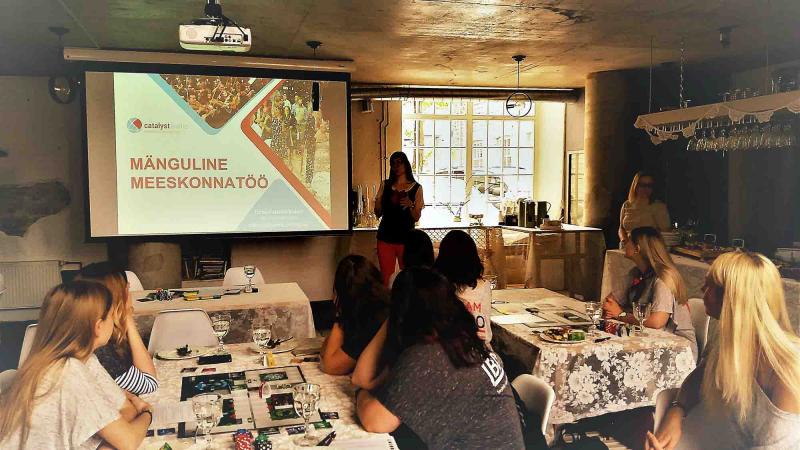
All kinds of skills are provided through training. If you are looking for a solution that will really help change your behaviour, look carefully at what's on offer. Does the team really lack the theory of how to work together, or a secure environment in which to test different approaches? Does the common experience of listening to a dinner table concert really bring the team members closer together? Or, it might be a good idea to intentionally link together the gathering of new information, recalling existing knowledge, drawing on and analysing experiences. If the latter approach seems as logical to you as brain scientists suggest, then the next logical step may be to enter. By combining experience and knowledge, you are taking a step toward true change. That's the point of enter-training.
